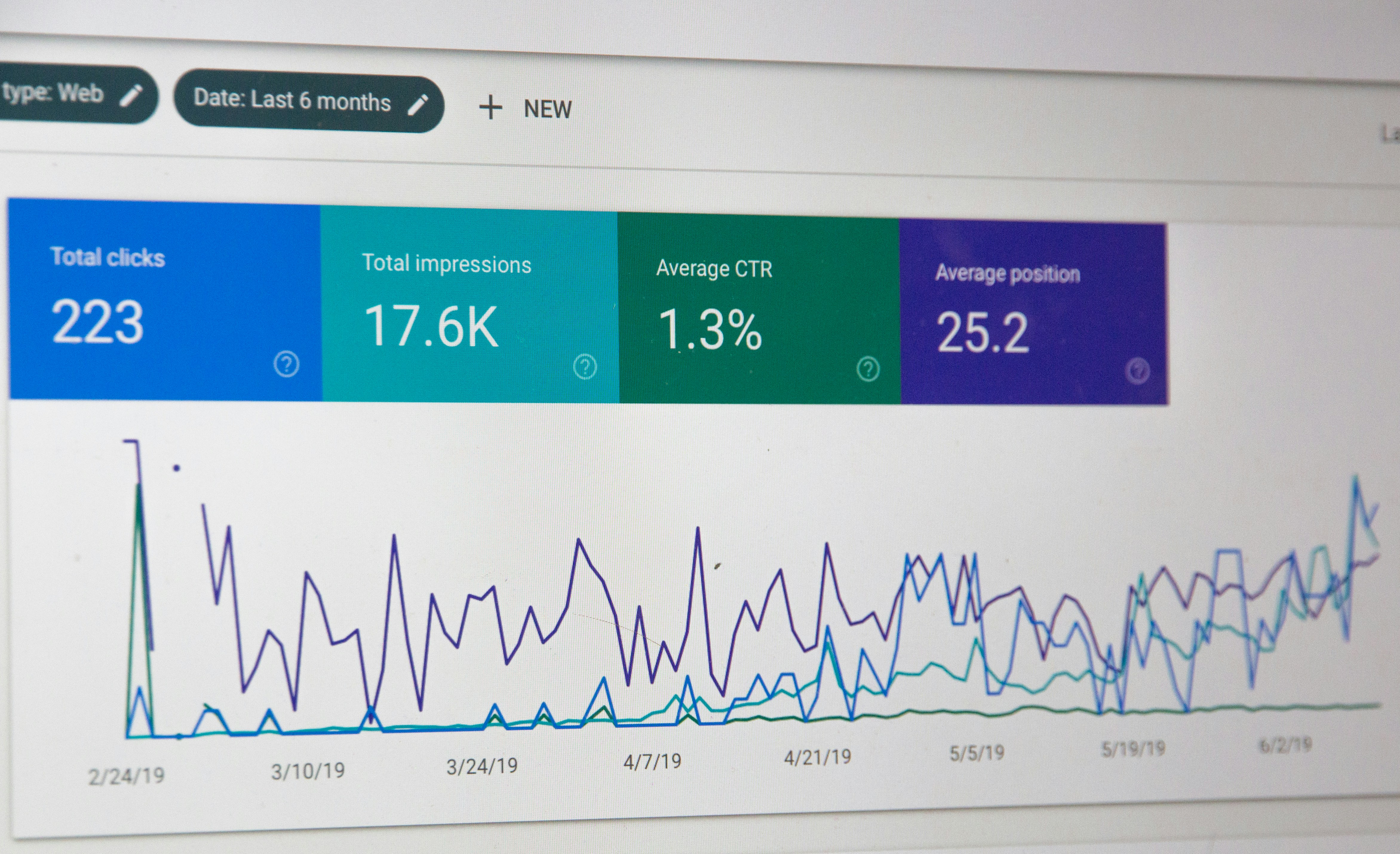
5 Ways AI Can Revolutionize Your Small Business in 2024
How AI Automates Routine Tasks, Optimizes Supply Chains, and Reduces Costs for Small Businesses
Artificial Intelligence (AI) has transcended its initial reputation as a luxury exclusively accessible by tech giants and multinational conglomerates. In today's evolving technological landscape, even small to medium-sized enterprises have the opportunity to harness the power of AI. The advent of scalable and affordable AI tools has democratized their usage, allowing small businesses to utilize artificial intelligence to automate mundane and repetitive tasks, which enhances their productivity significantly.
The role of AI in small-scale operations extends beyond mere automation. It serves as a catalyst for operational streamlining, enabling businesses to refine processes to a granular level. This not only contributes to a noticeable reduction in operational expenses but also significantly augments the level of precision in various business functions. By embedding AI-driven solutions into their ecosystems, proprietors of small businesses are finding themselves with more time and resources to invest in strategic, high-value activities that drive growth and innovation.
Furthermore, AI's analytical prowess is a game-changer for supply chain management within the small business sector. It allows for superior forecasting, inventory control, and logistics planning. This predictive capacity leads to better decision-making and a more agile supply chain, positioning small businesses to respond swiftly to market changes and customer demands, ultimately fostering an increase in overall efficiency.
In sum, the current era marks an exciting epoch for small businesses as they embark on their journey with AI. Integrating AI solutions is no longer an intangible aspiration but a tangible reality that is reshaping the way small businesses operate, compete, and succeed in the increasingly competitive marketplace. Small business owners stand at the forefront of innovation, ready to capitalize on the myriad benefits that AI has to offer.
1. Automating Routine Tasks
AI excels at automating repetitive tasks such as data entry, scheduling, customer support, and invoice processing. These routine tasks, while necessary for smooth operations, can be time-consuming and divert attention from more strategic efforts like growing the business or enhancing customer experience. By delegating these tasks to AI systems, small businesses can drastically increase operational efficiency.
For instance, AI-powered data entry tools can process large volumes of information far faster and with fewer errors than manual entry, leading to significant time and cost savings. In areas like scheduling, AI can manage appointments, send reminders, and optimize employee shifts, reducing the administrative burden on managers. Customer support has also seen a revolution with AI-driven chatbots, which handle common queries and resolve issues instantly, providing round-the-clock service without the need for human intervention. This ensures that customers get quick responses, improving satisfaction while allowing staff to focus on higher-level customer service or sales tasks.

automation code on computer screen
Additionally, AI-based invoicing solutions can automate tasks such as generating and sending invoices, tracking payments, and managing overdue accounts. This automation minimizes human errors, ensures timely payment follow-ups, and keeps the cash flow steady—critical for small businesses with limited resources.
In essence, AI allows small businesses to redirect valuable time and resources toward growth, customer engagement, and innovation, rather than getting bogged down by routine tasks. This ability to handle high-volume, repetitive work also reduces burnout for employees, leading to a more motivated and productive workforce.
Real-World Application: A small accounting firm can use AI-powered software to automatically enter and process financial data, reducing manual entry errors and speeding up bookkeeping processes(Dynamic Edge).
2. Optimizing Supply Chains
AI's ability to analyze large volumes of data enables businesses to optimize their supply chains by making more informed, data-driven decisions. By integrating various data sources such as historical sales patterns, market trends, and external factors (like economic conditions and even weather forecasts), AI systems can create highly accurate demand forecasts. This predictive capability allows small businesses to anticipate when, where, and how much demand will fluctuate, ensuring that they have the right inventory at the right time to meet customer needs.
For example, by using AI algorithms to study historical sales trends, businesses can identify seasonal patterns or promotional peaks that affect product demand. An AI-driven system might predict a surge in orders during the holiday season or a lull during certain months, allowing businesses to plan their inventory accordingly. This prevents the costly mistakes of either overstocking, which ties up capital in unsold products, or understocking, which results in missed sales opportunities.
Additionally, AI systems can factor in real-time market conditions, such as changes in customer preferences or supply chain disruptions, allowing businesses to react quickly to shifts in the market. For instance, if a sudden increase in demand for a particular product is detected through customer data or social media trends, AI can alert businesses to increase inventory before competitors can capitalize on the opportunity.
AI also helps small businesses by optimizing supplier relationships and logistics. Based on data analysis, AI can suggest the best suppliers to meet changing demand, compare pricing and delivery times, and even automate reordering processes. This reduces the complexity of supply chain management, helping small businesses reduce lead times, lower inventory holding costs, and avoid stockouts.

warehouse with boxes
In summary, by leveraging AI’s data-crunching capabilities, small businesses can move beyond guesswork in inventory management and create a more resilient, cost-effective supply chain. This level of optimization not only improves profit margins but also enhances customer satisfaction by ensuring product availability when it’s needed most.
Real-World Application: A retail business can use AI to forecast seasonal fluctuations in demand, ensuring it orders the right amount of stock ahead of time. This minimizes both stockouts and overstocking, reducing unnecessary costs(Dynamic Edge).
3. Reducing Costs and Increasing Efficiency
AI-driven analytics have the potential to transform how businesses operate by pinpointing inefficiencies and identifying opportunities for cost reduction in their daily operations. By leveraging advanced algorithms and machine learning techniques, organizations can gain deep insights into various operational metrics, enabling them to make data-driven decisions that enhance efficiency and reduce waste.
For instance, consider small manufacturers that often face tight margins and the constant pressure to optimize their processes. AI can play a crucial role in analyzing their energy usage patterns by collecting and processing vast amounts of data from machinery and equipment. This analysis can reveal trends and anomalies, such as periods of excessive energy consumption or underutilized machinery.
With this information, manufacturers can optimize machine operations by adjusting schedules, improving maintenance routines, or investing in more energy-efficient equipment. By implementing these optimizations, they can significantly lower their energy costs, contributing to overall operational savings. Additionally, AI can facilitate predictive maintenance, allowing manufacturers to anticipate equipment failures before they occur, thereby reducing downtime and the costs associated with unexpected repairs.

ATM keypad
In summary, AI-driven analytics not only streamline operations but also empower small manufacturers to make informed decisions that lead to sustainable cost reductions, improved productivity, and enhanced competitiveness in the marketplace.
Real-World Application: A manufacturing business uses AI to optimize its production schedule based on energy consumption data, resulting in significant cost savings by running machinery during off-peak hours(Dynamic Edge)(Lenovo StoryHub).
4. Enhancing Customer Experience with AI-Powered Tools
AI is fundamentally transforming the way small businesses engage with their customers, ushering in a new era of efficiency and responsiveness. By incorporating tools such as AI chatbots and virtual assistants, these businesses can manage customer interactions more effectively than ever before.
These AI-driven tools are designed to handle a wide range of customer inquiries, from answering frequently asked questions to processing orders and providing product recommendations. By utilizing natural language processing (NLP) and machine learning algorithms, chatbots can understand and respond to customer queries in real time, providing instant answers that enhance the customer experience. This immediate responsiveness not only satisfies customer needs promptly but also significantly reduces wait times, which can often be a source of frustration for consumers.
Moreover, AI chatbots and virtual assistants enable businesses to offer round-the-clock support without the need for additional human resources. This 24/7 availability ensures that customers can receive assistance at any time, regardless of their location or time zone. For small businesses that may lack the manpower to staff a customer service team around the clock, this capability is particularly valuable. It allows them to remain competitive in a landscape where customers increasingly expect instant access to support.

robotic call center
Additionally, these AI tools can analyze customer interactions and feedback, providing valuable insights into customer behavior and preferences. This data can be leveraged to refine marketing strategies, enhance product offerings, and personalize the customer experience. For example, if a chatbot consistently receives inquiries about a specific product feature, the business can take that feedback into account when developing future marketing materials or product updates.
Furthermore, by automating routine tasks and inquiries, small businesses can free up their human staff to focus on more complex customer issues that require a personal touch or specialized knowledge. This not only improves overall operational efficiency but also enhances employee satisfaction, as team members can engage in more meaningful and impactful work.
In summary, the integration of AI technologies in customer interactions is not just about improving response times; it represents a holistic shift in how small businesses operate. By embracing AI-driven solutions, these businesses can enhance customer satisfaction, improve operational efficiency, and ultimately drive growth in an increasingly competitive market.
Real-World Application: A small online store can use AI chatbots to automatically answer frequently asked customer questions, assist with tracking orders, and even suggest products based on past purchases, resulting in a more personalized and efficient shopping experience. This enhances customer satisfaction and loyalty while reducing the burden on human staff(Dynamic Edge)(US About Amazon).
5. AI-Driven Marketing Automation
Small businesses are increasingly recognizing the immense potential of artificial intelligence (AI) to enhance their marketing strategies and achieve more effective outreach. By automating various marketing tasks such as email campaigns, social media management, and content creation, AI tools allow these businesses to streamline their operations and focus on strategic initiatives that drive growth.
One of the key advantages of AI in marketing is its ability to analyze customer data at scale. Through advanced data analytics, AI can sift through vast amounts of information, identifying patterns and trends that human marketers might overlook. This analysis allows businesses to segment their audiences more effectively, categorizing customers based on their behaviors, preferences, and demographics. By understanding these segments, businesses can tailor their marketing messages to resonate with specific groups, resulting in more relevant and personalized communication.

marketing chart
Personalization is crucial in today's marketing landscape, where consumers expect brands to understand their needs and preferences. AI can automate the process of crafting personalized marketing messages, dynamically adjusting content based on individual customer profiles. For example, an e-commerce business might use AI to recommend products based on a customer's past purchases, enhancing the shopping experience and increasing the likelihood of conversion.
In addition to personalization, AI can optimize the timing of marketing efforts. By analyzing historical data and customer behavior, AI tools can determine the best times to send emails or post on social media. This ensures that businesses are reaching their target audiences when they are most likely to engage, maximizing the impact of each marketing initiative. For instance, AI may identify that a particular segment of customers is most active on social media during the evenings, allowing businesses to schedule posts for that time to boost visibility and interaction.
Moreover, AI-driven marketing automation platforms can manage and execute email campaigns efficiently. These tools can automate the process of sending follow-up emails, segmenting lists based on customer interactions, and even testing different subject lines or content formats to determine which resonates best with specific audiences. By freeing marketers from these repetitive tasks, they can dedicate more time to strategy, creativity, and building relationships with customers.
Content creation is another area where AI is making significant strides. From generating blog posts to creating social media captions, AI can assist businesses in producing high-quality content that engages their audiences. By analyzing trending topics and customer interests, AI tools can suggest relevant content ideas, helping small businesses maintain a consistent online presence without overburdening their teams.

ai copywriter
Furthermore, AI can provide valuable insights into campaign performance through real-time analytics and reporting. Small businesses can monitor key performance indicators (KPIs) such as open rates, click-through rates, and conversion rates, allowing them to assess the effectiveness of their marketing efforts. This data-driven approach enables marketers to refine their strategies, making informed decisions about where to allocate resources for maximum impact.
In summary, by leveraging AI in their marketing efforts, small businesses can enhance efficiency, improve customer engagement, and ultimately drive higher conversion rates. The combination of automation, data analysis, and personalization equips these businesses to compete more effectively in the marketplace, fostering stronger connections with their customers and laying the groundwork for sustainable growth.
Real-World Application: A local bakery uses AI to automate its email marketing, sending personalized promotions to different customer segments based on their past orders and preferences. By using AI-generated insights, the bakery can optimize its email send times and improve customer engagement, all while reducing the time spent managing its campaigns(US About Amazon)(Lenovo StoryHub).
To Wrap Things Up
In today's rapidly evolving business landscape, small businesses have a unique opportunity to harness the power of artificial intelligence (AI) to enhance operations and improve customer interactions. By automating essential tasks such as customer inquiries, marketing efforts, and content creation, AI tools streamline processes and enable businesses to deliver highly personalized experiences. With AI-driven analytics, companies can gain valuable insights into customer behavior, allowing for effective audience segmentation and targeted messaging that significantly boosts engagement and conversion rates. Additionally, AI optimizes the timing of marketing campaigns, ensuring that businesses connect with their audiences at precisely the right moments.
For small businesses looking to implement AI effectively, CallBack stands out as the leading option. By choosing CallbackCRM.com, you gain access to an innovative platform designed specifically to integrate AI into your business processes. CallBack offers comprehensive solutions that not only automate customer interactions but also enhance decision-making through advanced analytics. With CallBack, you can navigate the complexities of AI implementation with ease, empowering your business to operate more efficiently, remain competitive, and foster lasting relationships with your customers. Embrace the future of business with CallBack and pave the way for sustainable growth today!
